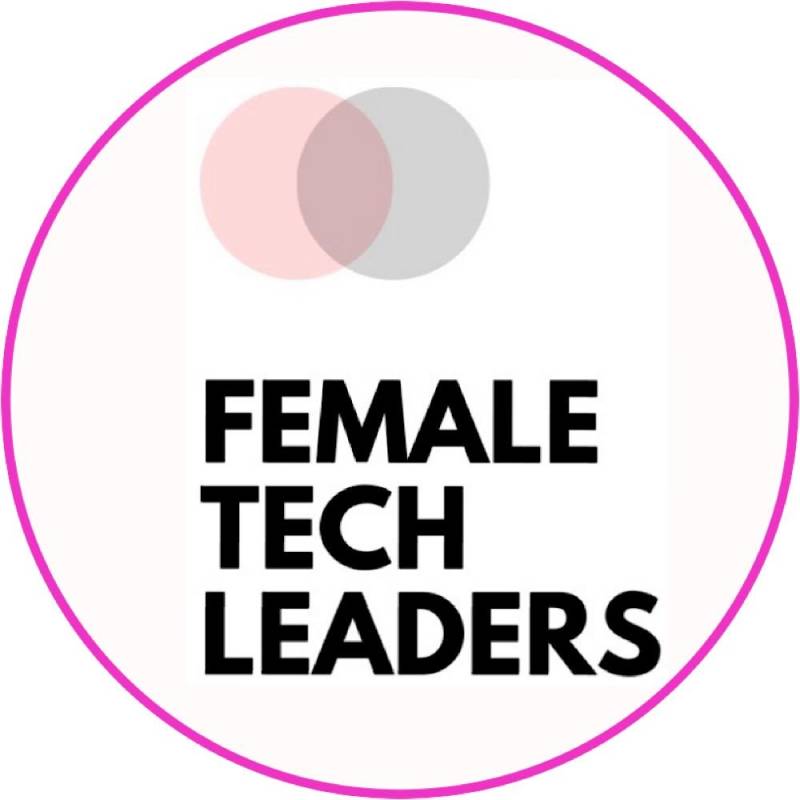WOMEN IN TECH - A CONVERSATION WITH PRIYA K CUTTS, FOUNDER OF 'FEMALE TECH LEADERS'

Priya K Cutts spoke to us about her experience as a Pakistani woman in tech based in Silicon Valley and what inspired her to create Female Tech Leaders. Her mission is to amplify the voices of women in the technology sector and practice the change she aspires to see.
Let’s start off by asking you about 'Female Tech Leaders'. The name is fairly self-explanatory, but what is it really? An organization, a blog?
Female Tech Leaders (FTL) is an online media platform. The motivation behind it is to provide inspiration and guidance to women aspiring to be in tech. I was nervous initially but I realized that there’s no better time than now to take a leap of faith.
It started as a blog with online interviews on 'Medium' that grew into a community on Instagram. Now we are planning on launching an interview series, 'Unfiltered with Priya K Cutts' on YouTube in 2021. The idea is to tell the stories of women in STEM.
Tell us a little bit about your professional journey in tech?
In early 2007, I started working for a German-based entertainment startup in Berkeley, which then led me to the forefront of Zynga, a unicorn business that took the world of online gaming by storm.
From there I went to join another gaming start-up in Miami and then found my way back to San Francisco to join Rally Health, a Health Tech start-up. Rally has since been acquired by UHG, the largest Health care company in the USA. Currently, I am Director of the Project Management Organization, managing a portfolio of over $10 million.
Women in leadership roles in any industry find themselves held to higher standards than men and often have to work twice as hard to get the same recognition as their male counterparts. How do you deal with that?
The short answer is “YES”, I do have to work harder. I am held to a higher standard because unfortunately, whether in Pakistan or in The US, there is systemic bias when it comes to working women. Even today no matter where you live, it is mostly women who are managing and leading the home front. During the lockdown, the impact on working mother's has been exponentially more than one working father's. In the US alone, 2 million women have left the workforce due to covid 19, a lot of those are due to school closures.
It is extremely important to start being the change you want to see in the world. I am in a leadership role with a certain amount of influence so I use that power to hold men and women to the same level of accountability.
Female Tech Leaders community is about amplifying voices and I make my voice heard without feeling guilty about it. I fight to make sure I get that seat at the table. I hope that we don't have to continue this taxing struggle moving forward and newer generations don't have to suffer because of this. How I deal with it is just push, push, push, do the work, do it better than anyone else and reap the benefits, hopefully.

What is it about the industry you work in that keeps women out? What do we need to do to ensure that more women are able to find their way into STEM jobs?
Tech has been a male-centric industry predominantly. Interestingly though, more women get engineering, computer science degrees than men but when they join the workforce, for varying reasons, end up leaving their promising careers in tech. They choose to move into supporting industries as product managers, project managers etc. I feel a big part of it is Silicon Valley’s infamous 'bro culture', which very much exists. It's like when you walk into the room to run a meeting, and the guys are talking about the coolest game that they have played or sharing inside jokes, where you feel like the other and in more rooms than not, you're the only woman. Speaking from experience, I have been the only woman in so many rooms that you really need to grow a thick skin and be okay with being the minority. Add to that, being the only woman of color, it's very easy to get faded out of those rooms. All of us have a collective responsibility to do better. We need to create a culture that values and nurtures a safe space and environment where women can thrive and not worry about making a decision to do either or. This type of support at work can then result in opportunities for more women to be a part of our industry, but the first step has to be taken at the team levels.
Who are your female role models? If someone was trying to get a daughter or younger sister interested in pursuing STEM subjects in school or college who would you point them to?
This is kind of hard because I think your role models vary by the stage of your career and where you are in life personally. In today's rapidly evolving global ecosystem, access into any industry is a lot easier. Just on Instagram alone, there's a whole world of women in tech that has opened up for me. A lot of them are contractors, many go to boot camps. Some don't work for big companies while others do work for large companies like Amazon and Google, and they are all making themselves seen and accessible. My advice to anybody who's trying to get their kids into it, would be to first assess if your kids are interested in it to begin with and then with guardrails on, look into social/online media. It is a great place to create connections with other people that are in this field, some who have a keen eye towards empowering young women and young girls to get into STEM. There are organizations like 'Code Pink, 'Girls Who Code', that you can always leverage.
For me personally, people that I look up to are the ones that I've worked with through the course my career. I take pride in admitting that I have been inspired by many people’s journeys and career graphs.

What are some of the most common issues that women who do manage to make it in this industry face?
It doesn't really matter whether you make it or not, the issues are still the same. At Rally, the first woman went out on maternity leave and they basically converted a small storage room to a nursing room which is now in a much more refined state, but that didn't exist and wasn't planned for when the office was constructed. In fact when I went back to work after my first son, there was no sink in the mother's room. The head of DEI got that fixed within days, but the head of HR who was a man at the time, couldn't quite understand why it was vital to have a sink.
The other thing is, there's a lot of mansplaining that happens. Now I know that can be a triggering term for some people so please bear with me. I could be an expert in my field and I could have said something meaningful but I still face men, interjecting confidently and explaining what I've said like it was their idea. However, I appreciate that I work with a lot of men that also call.out that behavior. I've had people respond with, “Did you repeat back to her what she just said? You have to build allies. So it can't be we hate all men, because that's just not how it works. I've got a husband who's extremely supportive and has always built teams of his own where there's been gender parity. I have wonderful mentors that are men that have lifted me up over the years of my career. It's important to build that network so they feel obliged to start changing the narrative and speaking up when they see something unjust happening around them.
What can leaders in your industry do to change the situation and ensure that more women find their way into tech jobs?
I believe leadership across the tech ecosystem is suddenly having a “come to Jesus'' moment around diversity, inclusion, equality and equity. What they're realizing is, women do make 50% of the population that can’t be ignored or silenced anymore. There's still not enough representation, especially as you move higher up. So we have to make it a priority to hire from a diverse group of people. If you just have men on a panel, they're going to hire people that look and talk like them. There are no two ways about it. Get them leadership unconscious bias training and vulnerability training that will teach them how to create a workplace which prioritizes hiring more women, people of color, and people from the LGBTQ community. This all begins with leadership.
At a company level, you have to incorporate policies and formalize them. You have to establish an organization whose focus is to bring on board a diverse workforce. If you don't put money towards it then nobody's going to put in the work because it's extracurricular activities otherwise.
Do you feel that attitudes are changing, particularly in younger people? What gives you hope that within this decade things will get better?
Yes, I can see the stark difference between working with people that have been in the workforce for 20 years versus people that joined the workforce for 5 to 10 years. Times are changing, boys and girls are being taught that they're equal, and they've been treated fairly. They've been given the same opportunities, it starts at home. You can't really endorse problematic thinking anymore like, boys don't cry, or only girls play with Barbie dolls, or just put them in pink dresses and blue shorts. It starts by first breaking those gender stereotypes. Then, the mindset translates into the workplace where they're all accepting of the fact that men and women are equal. There is improvement for sure but still work needs to be done.

What message would you give to young girls who are interested in STEM subjects?
I would say don't be intimidated and take your chances. If you had told me when I was 13, that I would be working in Silicon Valley and building a career in tech, I would have laughed at you. I was terrible at math and dropped it in ninth grade, because a teacher discouraged me but that's a story for another time. I made a decision to drop out of college so that I could pursue what I love doing. You don't even have to get a computer science degree. I am not encouraging you to neglect your formal education but for whatever reason if you can’t continue then don’t be disheartened because there are several resources to learn from. There are a million boot camps that you can join, plenty of books that you can read, workshops you can participate in and online schools that you can attend. Keep an open mind. Find a couple of mentors, get involved in the communities, and try to understand what the ecosystem looks like. In a nutshell, stay consistent, don’t ever give up and keep learning.

And finally, what advice would you give to the women who are already working in this field and finding that they don’t get the credit or opportunities that they deserve?
So I am of the mindset that you are in the driving seat. This is your movie, you are the director, you're the lead actor. It is your choice to fight or overlook. If you're being passed over for a promotion, talk about it. If somebody is being obnoxious to you in a meeting, call them out on it. Grow a thicker skin but not at the expense of jeopardizing your mental health. Don’t feel guilty about pushing the envelope in terms of questioning the status quo. If you feel you've been declined an opportunity, then ask why you're not being given the opportunity and use that information to grow. Find something to learn from the feedback you receive.
It's also really important to advocate for yourself. Talk about the pay disparity when you know that women are making less. I found that out myself four years ago at my company. It's because of my male friends who shared their numbers which gave me enough data to question my manager and HR. and make a case for a legitimate raise. Finding your voice and staying persistent is the only way to get it heard right now. And they will listen especially if your work is good, your gender should have no place in that conversation.
When you feel unrecognized or under appreciated, it is not always because of malice. It's probably a couple of things. Either you're not doing the work that's expected in your role, or you are being passed over because there's bias, and you should be able to tell the difference. Just keep pushing, keep asking the questions, make it difficult for them to ignore you.
I think I make people a little uncomfortable, but I'm ok with that. I talk about things, I stand up for the things that I believe in at the expense of maybe creating some waves.
Overall, it's an amazing industry to be a part of. I wouldn't trade it for the world. There are some incredible women that are doing amazing work both in Pakistan and the US. I strongly believe that there's a lot of opportunity and enough to go around for everybody.
Find out more about Female Tech Leaders.
